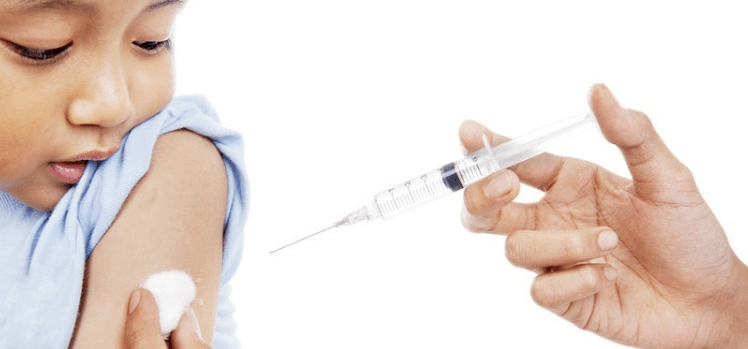For a parent, their child’s health is the most important thing in the world. They protect them with proper shelter, safety, and nutrition. But if parents miss their child’s vaccinations, they are exposing them to several deadly diseases. The most effective prevention is to make sure a child receives proper vaccinations throughout their life.
If one is searching for a clinic that offers baby vaccination in South Delhi, one can pay a visit to Dr. Promilla Butani’s Pediatric Practice. It is a parent-friendly clinic run by the expert pediatrician, Dr. Promila Butani, catering to all the needs of newborn babies, children, and adolescents.
What are the Several Benefits of Vaccinations?
Early childhood vaccinations help children when they are most vulnerable. Also, these vaccinations prevent several childhood illnesses, which often tend to have devastating effects on children. A few of them include HPV, influenza, measles, polio, tetanus, and whooping cough. Not only do these vaccinations help keep the kids safe, but regular vaccinations of healthy children also help protect those children in the community who do not receive vaccinations due to health issues or allergies. This is known as ‘herd immunity’.
The vaccination rates need to be higher than 95% to protect those who cannot get vaccinated. Therefore, one must not forgo vaccinations assuming that others will safeguard them. Due to the wonderful success of vaccinations, many individuals haven’t seen any consequences of these deadly diseases.
If one is searching for the best child specialist doctor in South Delhi, one can book a consultation with Dr. Promila Butani at Dr. Promilla Butani’s Pediatric Practice.
Points to Remember:
- Vaccination is a safe and effective way to keep the family fit and healthy.
- The recommended vaccines balance when a child is likely to be exposed to certain diseases and when a vaccine is most effective.
- Vaccines are tested before they are administered to ensure they are given safely and effectively to all age groups.
How Do Vaccinations Work?
Vaccinations use a weakened or dead antigen that helps the body trigger an immune system response. This allows children to develop immunity and face a significantly lower risk of harm compared to actual infection. Also, there is no issue with giving infants multiple vaccines at once. Since babies are exposed to new antigens every day, the amount of antigen in the vaccines is only a fraction of what they get exposed to.
Here is a list of important vaccines that are recommended for children:
1st Year Vaccines
- BCG-Hepatitis B-1 Oral Polio Vaccine: Given at the time of birth
- Hepatitis B-2: 4-6 weeks
- IPV1,DTaP/DTwP1 + Hib1: Given during 6–8 weeks
- PNEUMOCOCCAL VACCINE1: Given during 6–8 weeks
- IPV2,DTaP/DTwP2 + Hib2: Given during 10–12 weeks
- PNEUMOCOCCAL VACCINE: Given during 10–12 weeks
- IPV3,DTaP/DTwP3 + Hib3: Given during 14–16 weeks
- PNEUMOCOCCAL VACCINE3: Given during 14–16 weeks
- HEPATITIS B3 + OPV – Given during 6 months
- ROTAVIRUS – 1: Given during 6–8 weeks
- ROTAVIRUS – 2: Given during 12–14 weeks
- MEASLES/MMR: Given during 9 months
- FLU VACCINE: Given during 6-8 Months
- TYPHOID CONJUGATE VACCINE: Given during 1 year
2nd Year Vaccines
- Mumps, Measles, and Rubella: Given at 15 months
- Chickenpox: Given at 15 months
- Pneumococcal Vaccine first booster- Given at 15–18 months
- IPV, DtaP first booster: Given at 15–18 months
- Hepatitis A Vaccine: Two doses are given. Beginning at the age of 18–19 months
2nd and 4th Year Vaccines
- Flu vaccine – each year
- The typhoid conjugate vaccine has to be repeated at the age of two years. If the typhoid vaccine has not been given before, it can be administered at any age. A booster dose is given after two years.
- Meningococcal Vaccine: The vaccine helps to prevent meningitis, which is caused by meningococci. It is administered in a single dose to children at the age of 2.
5th Year Vaccine
- DtaP and IPV boosters, chicken pox boosters, and MMR
If one is searching for a pediatrician in Delhi, one can consult Dr. Promilla Butani at Dr. Promilla Butani’s Pediatric Practice. The expert doctor has four decades of experience and has been working in the field of childcare since 1971.
She looks after general pediatrics, community pediatrics, social pediatrics, adolescent pediatrics, immunization and vaccination of children from 0 to 18 years, breastfeeding techniques, etc.
For more information, pay a visit to Dr. Promilla Butani’s Pediatric Practice today!
Source: https://drpromillabutani.blogspot.com/2023/05/keep-your-child-healthy-with-proper.html

